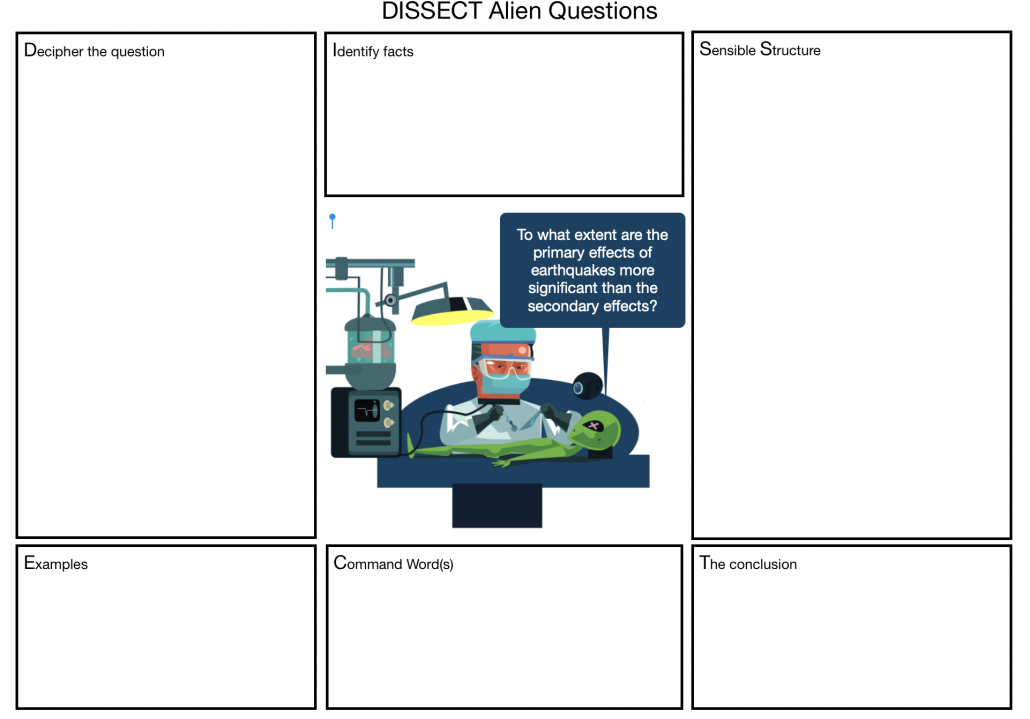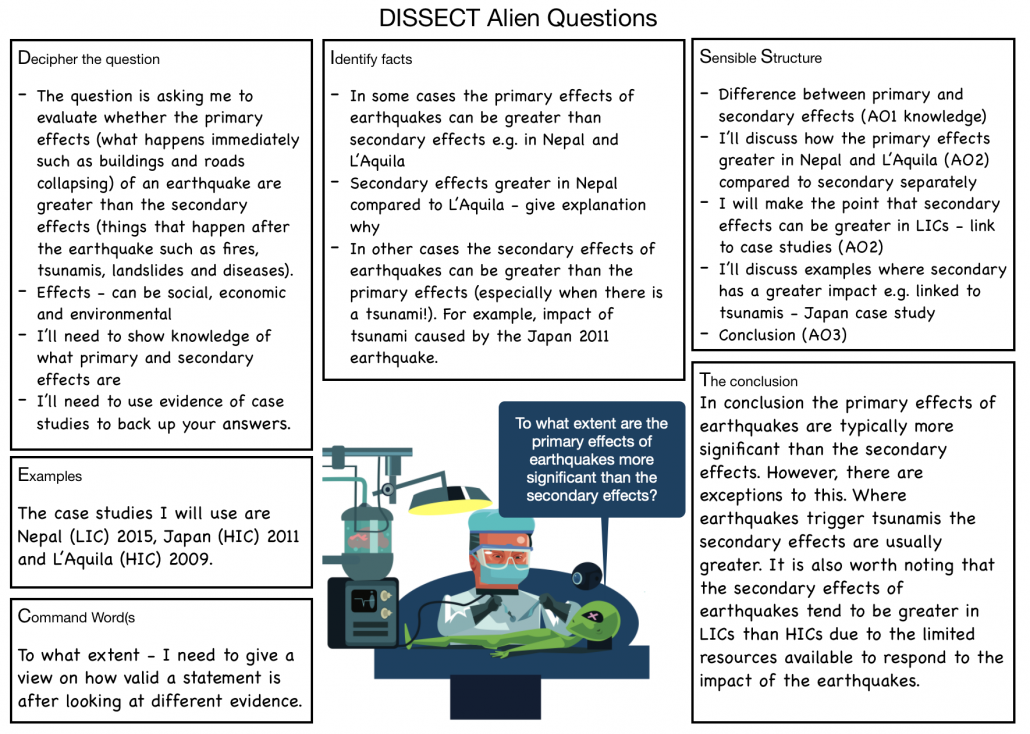Scaffolding to tackle alien questions
Having recently read Mark Esner’s post on the TES on Scaffolding: are you using it properly? it reminded me about a scaffolding strategy I’ve used in the past to tack alien ‘questions’.
You’ve crafted and delivered a fantastic set of lessons where students have soaked up knowledge and developed their understanding around a particular topic only to crash and burn when faced with an extended exam question.
Sound familiar?
Then you’ve experienced the scourge of the classroom – the alien question. Alien questions are usually greeted with blank expressions, quickly followed by the looks of pure panic. Despite having developed incredible subject knowledge, applying this to an exam question that students don’t understand is a near impossibility.
Having experienced the curse of the alien question in the classroom, I quickly realised students need to dissect exam questions to apply their skills, knowledge and understanding. This led to the development of a resource that provides students with scaffolding in completing alien questions. Enter DISSECT to Alien Questions. DISSECT is a simple acronym to help students remember how to attempt an alien question:
- Decipher the question
- Identify facts
- Sensible Structure
- Examples
- Command words
- The conclusion

DISSECT the exam question template
The modelling starts with working out what the exam question is asking. This is followed by identifying examples, such as case studies, that will be included in the answer. Next, the key facts that will be included in the response are recorded. A simple structure is then be planned. Finally, a brief plan for a clear and concise conclusion is recorded. Of course, the model is flexible in terms of the order taken to prepare an answer. For example, planning the conclusion may come before planning the structure.
Below is an example of scaffolding for an alien question that has been live modelled with students.

Example DISSECT the exam question
Eventually, the scaffolding needs to be removed in order for students to be able to tackle alien questions independently. After all, they can’t take the framework into the exam with them. So, how might this be achieved? Below are a series of steps that could be taken to help achieve this:
- The teacher models the thinking process they would go through in completing the alien exam question using the template;
- Repeat this several times with different exam questions;
- Students work in small groups using the template to plan an answer to an alien question. They then rotate around the class looking at other group’s plans and add annotations;
- Students complete the template in pairs, then share with other couples to get feedback;
- Students use the model independently;
This would occur over an extended period as students will need several experiences using this approach until it is embedded.
Download the template and example below:
If you model any examples using this technique please send a copy over to share via [email protected]
Anthony Bennett
